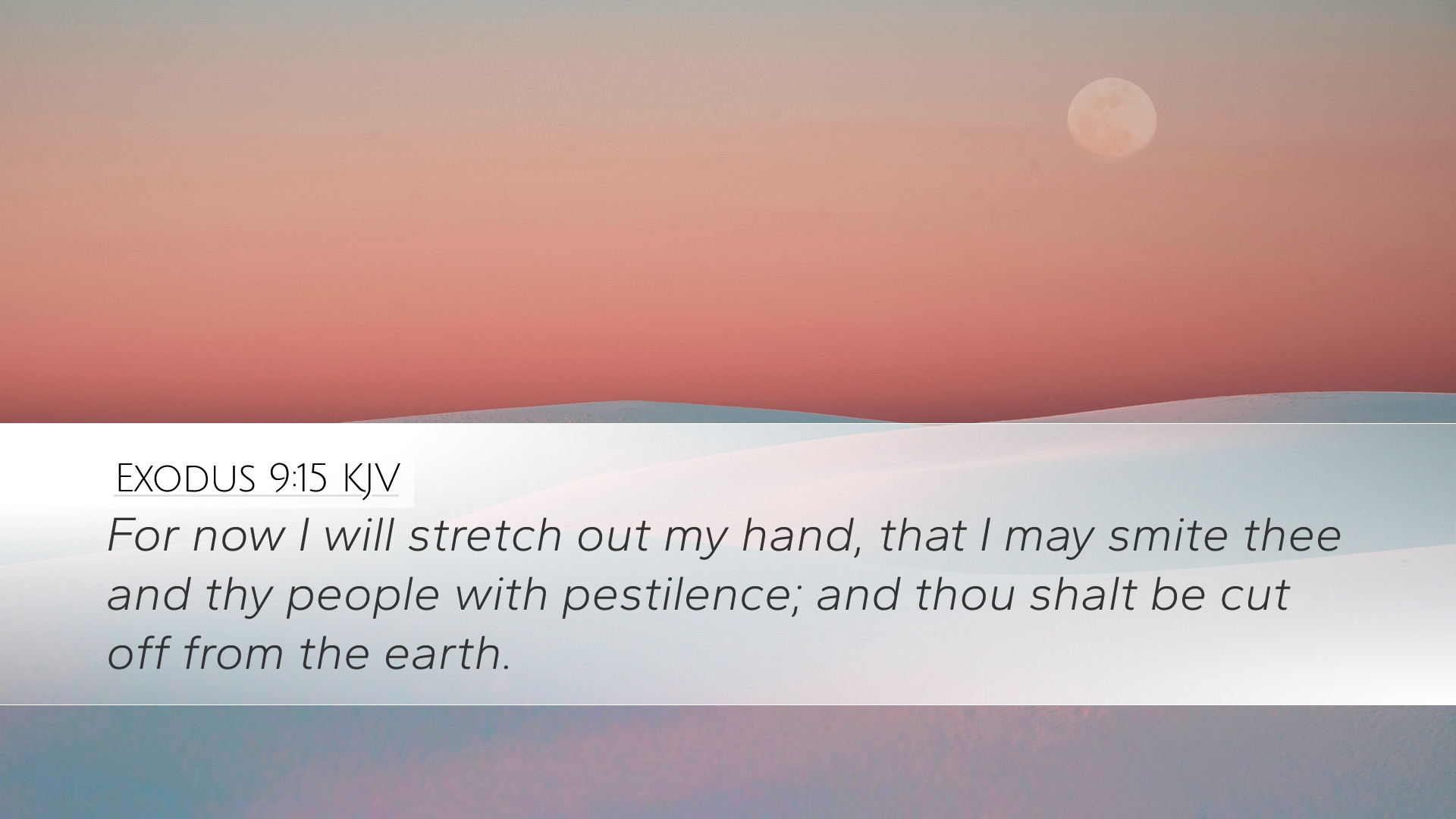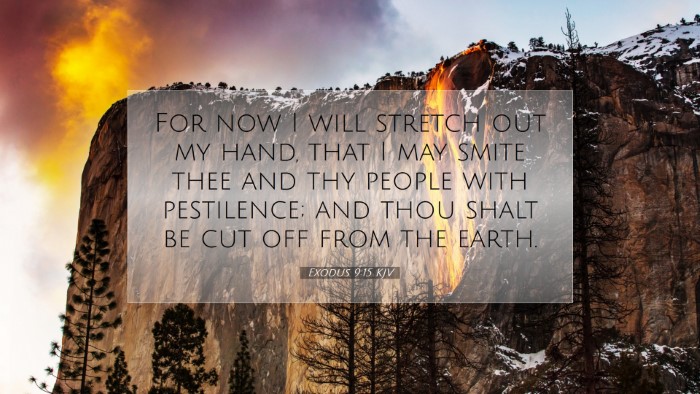Exodus 9:15 - Commentary
Bible Verse: "For now I will stretch out my hand, that I may smite thee and thy people with pestilence; and thou shalt be cut off from the earth."
Introduction
The passage of Exodus 9:15 is situated within the context of the plagues that were sent upon Egypt as divine judgments against Pharaoh and his people. It reveals God's sovereignty and power over creation and serves as a critical turning point in the narrative of Israel's deliverance from bondage. This commentary draws from the insights of Matthew Henry, Albert Barnes, and Adam Clarke to provide a comprehensive understanding of the verse.
Contextual Background
To fully appreciate the gravity of Exodus 9:15, one must consider the preceding verses where Moses and Aaron confront Pharaoh. The previous plagues illustrate God's judgment against Egyptian gods and the stubbornness of Pharaoh's heart. By this stage, God’s intent is made clear: He is demonstrating His power to both Egypt and Israel.
Historical Perspective
- Pharaoh's Resistance: Despite multiple warnings and plagues, Pharaoh's heart remained hardened, illustrating the depths of his rebellion against God's authority.
- The Suffering of Egypt: The plagues represented not only divine retribution but were also intended to bring a message of repentance to the Israelites and Egyptians alike.
Theological Insights
Divine Sovereignty
Albert Barnes emphasizes that God’s declaration of stretching out His hand is a metaphor for the active intervention of God in human affairs. This act demonstrates His sovereignty and authority over all nations and kings. The 'pestilence' mentioned indicates a swift and devastating judgment that would further demonstrate God's power.
Judgment and Mercy
Matthew Henry notes that God’s judgments are aimed at not just the oppressors but also serve as potential moments for repentance. The plagues, including the pestilence threatened in Exodus 9:15, were meant to soften the hard-heartedness of Pharaoh and compel him to release the Israelites.
Consequences of Rebellion
Adam Clarke discusses the consequences outlined for Pharaoh and his people: being "cut off from the earth." This phrase indicates severe divine judgment, a warning not only of physical destruction but also the loss of favor from God.
Pastoral Application
This verse holds significant messages for contemporary readers, especially pastors and leaders:
- Calling to Obedience: Just as Pharaoh was called to submit to God’s command, so are modern believers encouraged to respond to God’s voice with humility and obedience.
- Understanding God’s Patience: God’s initial warnings through Moses demonstrate His long-suffering and desire for repentance before judgment is enacted.
- Reality of Divine Judgment: The verse provides a sobering reminder of divine justice and the eventual consequences of persistent disobedience against God’s will.
Conclusion
Exodus 9:15 is a powerful reminder of God’s sovereign ability to execute His will among nations and individuals. The insights from public domain commentaries bring forth a rich understanding of the text, encompassing themes of divine authority, human rebellion, and the call to repentance. It challenges believers to reflect on their own hearts and actions in relation to God's sovereignty and grace.
Reflection Questions
- What does this passage teach us about the nature of God in relation to human authority?
- How can we apply the lessons of obedience and humility in our own lives?
- What does it mean to recognize God's hand in our circumstances, whether in blessing or judgment?


